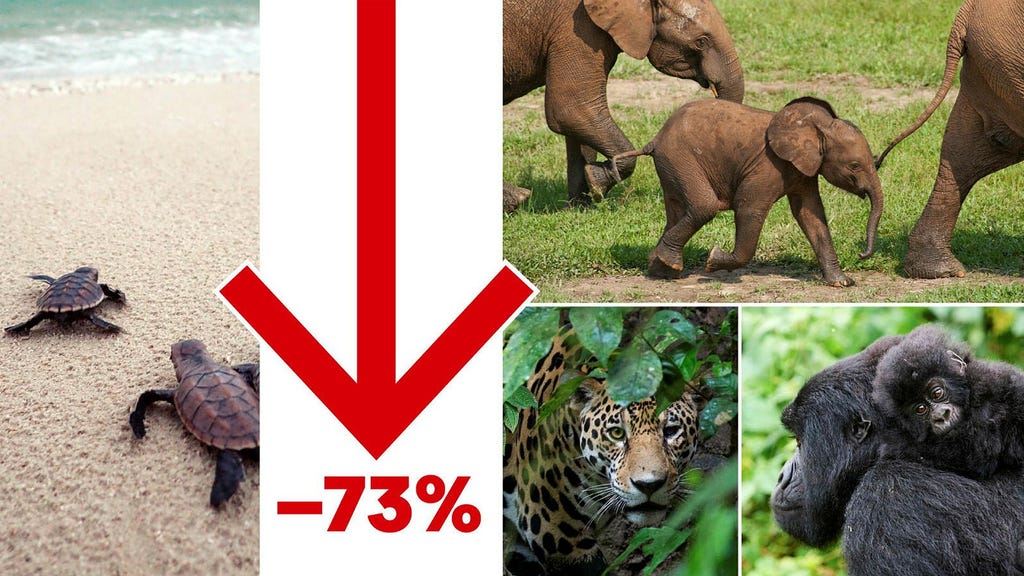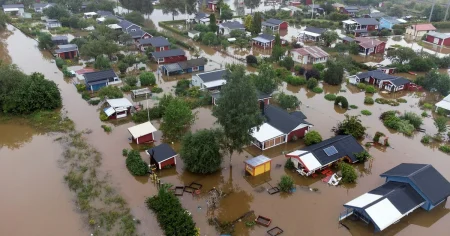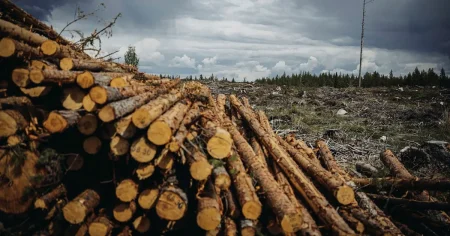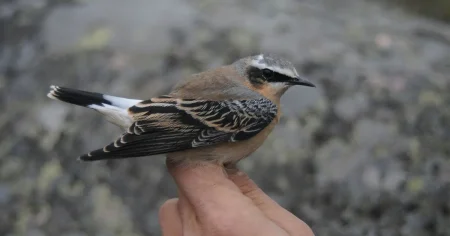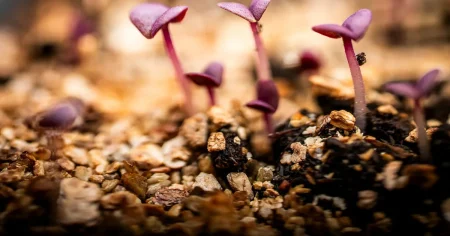The Living Planet Report 2024, released by the World Wildlife Fund (WWF), paints a stark picture of the state of global biodiversity. It reveals a staggering 73% decline in monitored populations of mammals, birds, fish, amphibians, and reptiles between 1970 and 2024. This dramatic decrease represents a severe threat to the planet’s ecosystems and underscores the urgent need for transformative change in how humanity interacts with the natural world. The report highlights the interconnectedness of all living things and emphasizes that the continued loss of biodiversity undermines the very foundations of life on Earth, impacting everything from climate regulation and clean water provision to food security and human health. The precipitous decline in wildlife populations serves as a critical warning signal, demanding immediate and concerted global action to reverse this devastating trend.
One of the most significant drivers of this biodiversity loss, according to the report, is the way we produce and consume food. Intensive agriculture, characterized by large-scale monoculture farming, extensive pesticide use, and the conversion of natural habitats for farmland, is placing immense pressure on wildlife populations. The expansion of agricultural land encroaches upon the natural habitats of countless species, leading to habitat loss and fragmentation. This reduces the available space for wildlife to thrive, disrupts migration patterns, and increases competition for dwindling resources. Furthermore, the heavy use of pesticides and fertilizers contaminates water sources, harms beneficial insects, and disrupts delicate ecological balances. The report emphasizes the urgent need for a shift towards more sustainable agricultural practices that prioritize biodiversity conservation and minimize environmental impact.
The link between food choices and environmental impact is a central theme of the WWF report. Anna Richert, a food expert at WWF, stresses the importance of recognizing the connection between what we eat and the state of the natural world. Every dietary decision, from the type of protein we consume to the origin of our produce, has repercussions for biodiversity. Choosing foods produced through environmentally damaging practices contributes to habitat destruction, pollution, and climate change, all of which exacerbate the decline in wildlife populations. Conversely, opting for sustainable and responsibly sourced food can support biodiversity conservation by reducing pressure on natural habitats, minimizing pollution, and promoting more sustainable agricultural practices.
The report underscores the need for a systemic shift towards sustainable food systems. This involves transforming agricultural practices, promoting sustainable consumption patterns, and reducing food waste. Transitioning to more sustainable agricultural methods, such as agroecology and regenerative agriculture, can help minimize the environmental footprint of food production while enhancing biodiversity. These approaches prioritize ecological principles, focusing on soil health, water conservation, and minimizing the use of synthetic inputs. They also emphasize diversification of crops and livestock, creating more resilient and ecologically balanced farming systems. By adopting these practices, we can move towards food production that works in harmony with nature rather than against it.
Beyond agricultural practices, consumer behavior plays a crucial role in shaping sustainable food systems. Making conscious food choices, such as reducing meat consumption, opting for sustainably sourced seafood, and supporting local and organic farmers, can significantly reduce the environmental impact of our diets. Reducing food waste is another critical component of sustainable consumption. A significant portion of the food produced globally is lost or wasted, contributing to unnecessary environmental burdens. By minimizing food waste at both the individual and systemic levels, we can reduce the pressure on natural resources and mitigate the negative impacts of food production on biodiversity.
The alarming decline in wildlife populations highlighted in the WWF report serves as a stark reminder of the interconnectedness of human actions and the health of the planet. The report emphasizes the urgent need for collective action to reverse this trend and protect the biodiversity that sustains life on Earth. This requires a fundamental shift in our relationship with nature, embracing sustainable practices across all sectors, from agriculture and food consumption to energy production and resource management. By recognizing the interconnectedness of our choices and the impact they have on the natural world, we can work towards a future where both humanity and wildlife can thrive. The time for decisive action is now; the future of biodiversity, and indeed the planet, depends on it.





